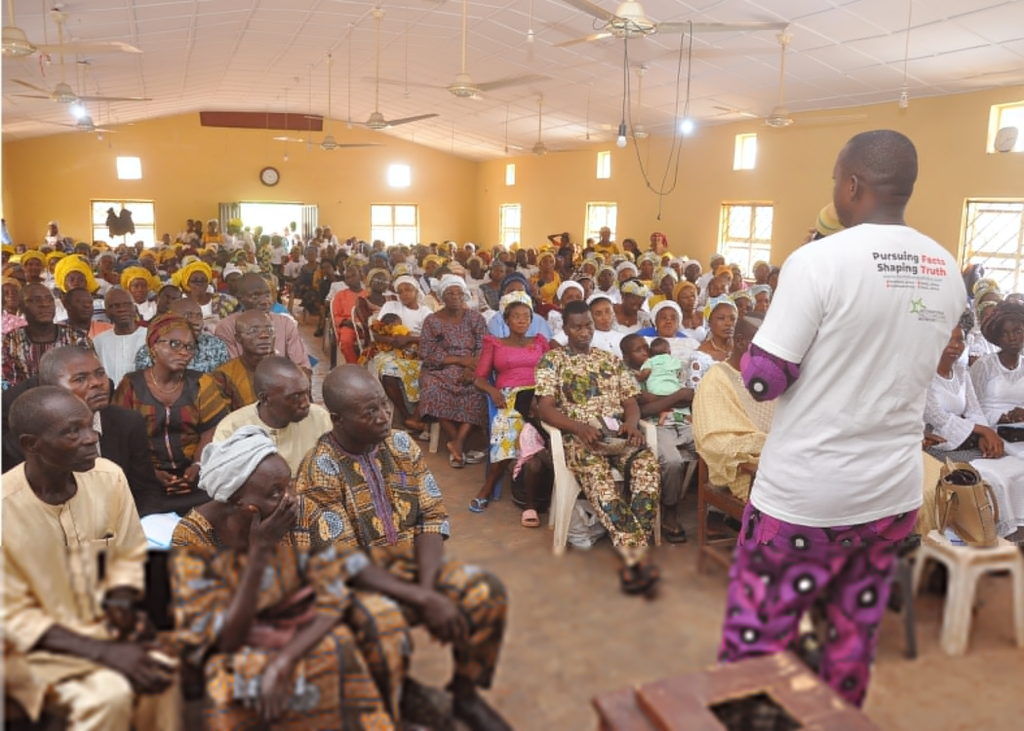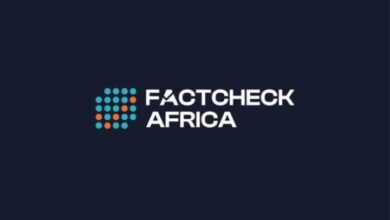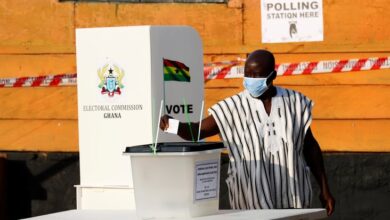FactCheckAfrica Takes Sensitization on Combating Misinformation to Grassroots Communities in Oyo

By Oluwaseye Ogunsanya
In its unalloyed effort to ensure that all members of the society are carried along in the fight against misinformation, FactCheckAfrica has taken its community sensitisation outreach to Oyo state.
The outreach, which was organized in collaboration with The Cedars for Human Welfare Initiative (CEHUWEI) and supported by the International Fact-Checking Network (IFCN) took place across multiple communities, including Olode Elelu, Ikoyi, Fedegbo Olokiti, Elesun Adeosun, Alaropo Nla, and via the Ajilete FM radio station.

The outreach reached a broad audience, from local farmers and traders to religious leaders and persons with disabilities as they addressed the critical role of fact-checking and the threat posed by misinformation in the society, with the hope of fostering a more informed public.
In Olode Elelu, CEHUWEI’s session coincided with the Annual Conference of the NBC Diaspora Ministry Programme, bringing together over 400 participants. The session focused on explaining misinformation, its dangers, and strategies for verification using tools such as MyAIFactChecker. Attendees were urged to cross-check information with trusted sources, including community leaders and relatives in urban areas, before sharing. The community’s engagement was high, with a lively discussion and commitment to verifying information before dissemination.

Similarly, in Ikoyi, despite the rain which affected attendance, CEHUWEI reached out to about 60 participants. This session emphasised practical fact-checking methods, with community members raising concerns about the role of local leaders in spreading unverified information. It was also greeted with positive feedback from attendees as they requested additional resources, such as Information, Education, and Communication (IEC) materials, to help reinforce the campaign’s message.
At Fedegbo Olokiti, the participants defied the heavy downpour by making their way down to the First Baptist Church and Mission Baptist Church, the venue of the sessions. They were exposed to the common types of misinformation, tools for fact-checking, and strategies for cross-verifying information. The community members expressed gratitude, noting a newfound understanding of misinformation’s impact and the importance of verification.

In Elesun Adeosun, held at the Baale’s Palace, approximately 40 community members attended despite adverse weather. Here, attendees expressed a need for better laws and policies against misinformation, and participants, particularly the youth with smartphones, pledged to verify information before sharing it. The programme prompted local leaders to consider extending similar initiatives to other communities.
The Alaropo Nla community saw about 75 participants gather at the Baale’s palace, where misinformation concerning government programmes and local governance issues was discussed. The interactive session was well-received, with participants engaging in a lively Question and Answer. Notably, the Baale (community leader) himself shared personal experiences with fake news, underscoring the need for vigilance and verification in information sharing. Attendees also suggested expanding the programme to other communities and requested the provision of IEC materials to serve as lasting reminders of the importance of fact-checking.
To broaden the campaign’s reach, we conducted a live session on Ajilete FM, estimated to reach around two million listeners across Oyo, Osun, Kwara, and Ekiti states. The session included discussions on the tools and techniques of fact-checking, with an emphasis on the MyAIFactChecker app. The live session also accommodated a call-in segment that allowed listeners to share their concerns, particularly regarding the need for stricter sanctions against those responsible for spreading false information. The programme’s success led to more requests for radio sessions to ensure wider access to fact-checking information.




